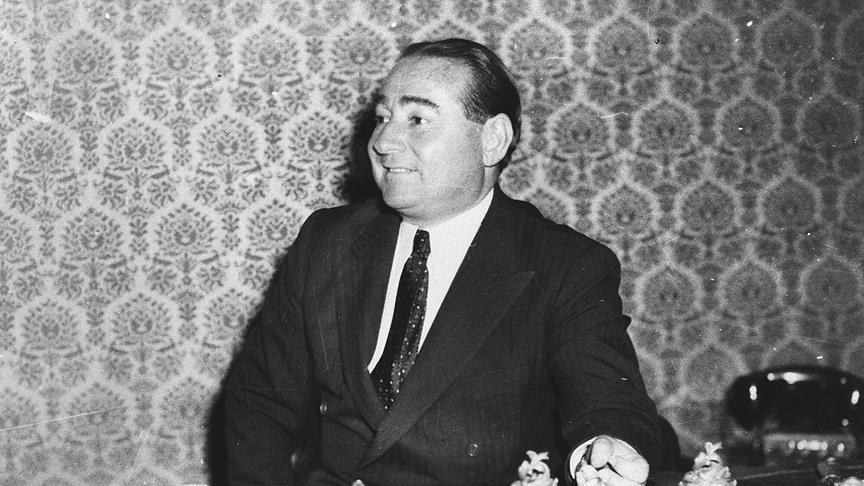
By Ahmet Salih Alacaci
ANKARA
As Turkey’s ninth prime minister and first popularly elected leader, Adnan Menderes symbolizes the 1960 military coup and the damage it did to the country’s democracy.
He was born Ali Adnan Ertekin Menderes in 1899 in Turkey’s western Aydin province and later attended the American College in the Aegean city of Izmir.
After serving in the Turkish War of Independence from 1919 to 1923, he graduated from Ankara University’s Law School in 1930.
That same year, he joined the Liberal Republican Party. At the personal invitation of Turkish Republic founder Mustafa Kemal Ataturk, he joined the Republican People’s Party (CHP) and was elected to parliament from Aydin.
In a bout of intra-party strife, Menderes was discharged from the party in 1945 along with MPs Celal Bayar, Refik Koraltan, and Fuat Koprulu. This event would come to be known as the “Memorandum of the Four.”
One year later, these politicians founded the Democrat Party, Turkey’s first formal opposition to survive more than one year, and were elected in Turkey’s first free and fair elections in 1950.
As the most senior member of the group and a close confidant of Ataturk, Bayar was elected by parliament to the post of president, with Menderes becoming prime minister and the party’s formal leader.
During his tenure, Menderes enacted liberal policies in both the economic and political realms. He is known in particular for abolishing the mandatory Turkish call to prayer on June 16, 1950.
One year after his government was toppled by a military junta, Adnan Menderes was hanged by the junta 57 years ago on Sept. 17, 1961, on the small Marmara Sea island of Imrali.
Menderes was one of the three senior Democrat Party officials hanged on that day. The other two were Fatih Rustu Zorlu and Hasan Polatkan, the foreign and finance ministers.
Accused of violating the Turkish Constitution and embezzling funds from the state, all three were tried by a military court on the Island of Yassiada to the southeast of Istanbul along with all senior officials of Menderes’ party. To this day, the island is seen as a symbol of the sorrows of Turkish democracy.



